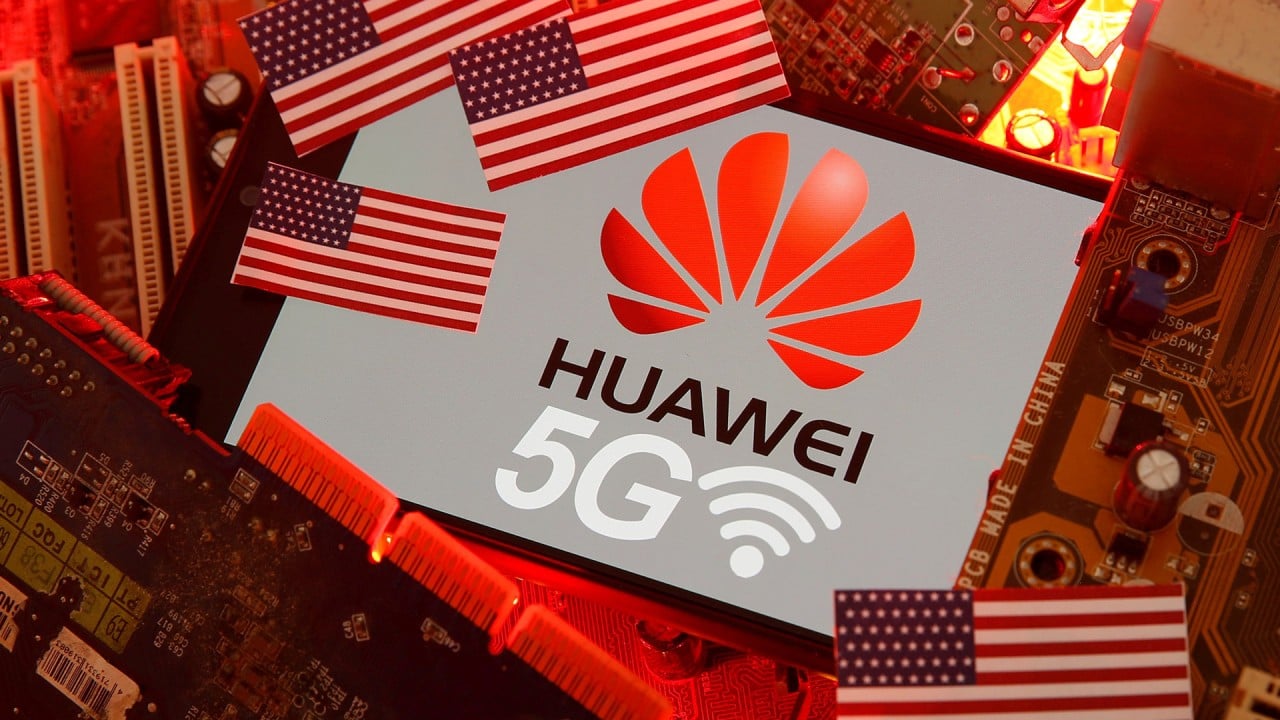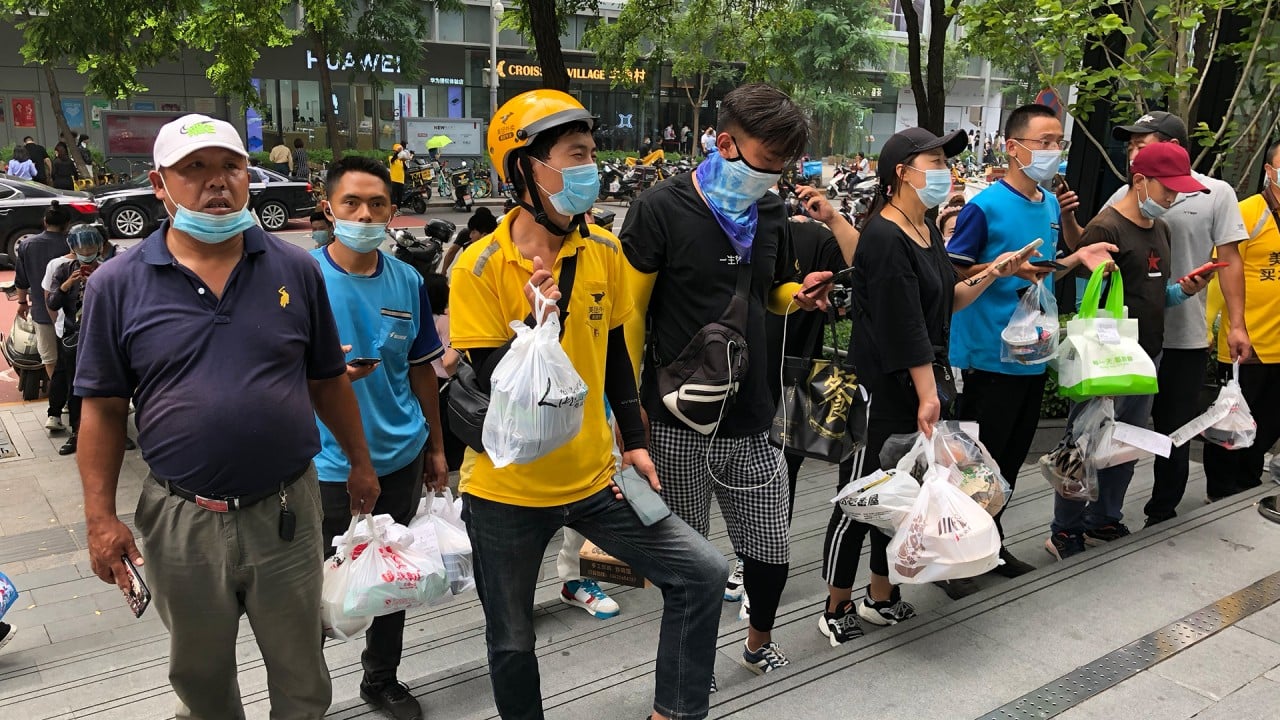
Inside China Tech: US hackers responsible for more than half of all foreign cyberattacks in China
- More than half of computer malware attacks in China from overseas entities last year originated in the US, according to a report
- US sanctions on Huawei may cut short the telecommunications giant’s reign as the world’s No 1 smartphone vendor
Good morning, this is Melissa Zhu from SCMP’s tech desk in Hong Kong with our weekly summary of our top stories.
From a total of more than 62 million computer malware attacks captured by the National Computer Network Emergency Response Technical Team (CNCERT), around 53.5 per cent of foreign attacks were from the US, lower than a year before when there were in excess of 100 million incidents, the team said.
Russia and Canada were the second and third largest contributors to computer malware attacks against China, accounting for 2.9 and 2.6 per cent respectively of the total number of foreign attacks.
CNCERT, which issued a cybersecurity report on Tuesday, describes itself officially as a “non-governmental non-profit” agency but a 2019 job post on their website said it sits “directly under the Cyberspace Administration of China”, the nation's top internet watchdog.

01:29
US indicts Chinese men for hacking related to coronavirus vaccine data and defence secrets
The report comes at a time when cybersecurity is rising up the international agenda amid escalating tech and trade tensions between the US and China.
Chinese agencies and diplomatic missions were targeted by hackers through their virtual private network (VPN) servers in a coordinated cyberespionage campaign earlier this year, according to a report by leading Chinese cybersecurity provider Qihoo 360 in April.
The US Justice Department also accused a pair of Chinese hackers in July of targeting vaccine development on behalf of the country’s intelligence service as part of a broader years-long campaign of global cybertheft aimed at industries such as defence contractors, high-end manufacturing and solar energy companies.
More than half of foreign cyberattacks against China originate in US
Huawei’s chip shortage
US sanctions on Huawei may cut short the telecommunications giant’s reign as the world’s No 1 smartphone vendor, as the company publicly admitted that it may not be able to ship handsets with its high-end Kirin chips after this year.
“We are in a difficult situation … Huawei’s smartphones have no chip supply,” Richard Yu Chengdong, chief executive of the company’s consumer business group, said on Friday at the China Info 100 conference, according to a video recording of his comments posted on multiple websites.
“This year may be the last generation of Huawei Kirin high-end chips … This is a big loss for us,” he said.
Huawei, which overtook Samsung Electronics in the second quarter to become the world’s top smartphone vendor, is at the epicentre of escalating US-China tech tensions.

05:22
Huawei founder on cybersecurity and maintaining key component supply chains under US sanctions
In May, Washington expanded its sanctions against Huawei by prohibiting foreign chip makers like Taiwan Semiconductor Manufacturing Co (TSMC) from using US technology to produce chips for the Chinese company. That move followed its inclusion in a US trade blacklist a year earlier.
With its in-house HiSilicon chip unit, Huawei was able to get around the first US ban by designing its own chips to replace those it could not buy from US suppliers like Qualcomm.
However, that loophole was closed with a new direct product rule sanction that takes effect September 15, which will require TSMC or any other non-US semiconductor maker that uses US equipment in its wafer fabs to apply to Washington for a licence to ship chips to Huawei.
Huawei’s reign as top smartphone maker may be short-lived as sanctions bite
Cracking down on mukbangs
Eating shows, also known as mukbang, originated from South Korea but have become a global sensation in the past few years.
Watching videos of people consuming an often unbelievably large quantity of food have become a guilty pleasure for millions of people around the world.
In China, however, video platforms are moving to regulate such shows of excess.
On Tuesday, President Xi Jinping called for an end to the “shocking and distressing” problem of food waste amid a challenging economic environment.
The next day, Chinese state broadcaster CCTV criticised online eating programmes that show participants consuming an excessive volume of food, and even spitting out the food after eating, describing them as “an extreme example of food waste”.

04:13
Pandemic food delivery boom creating vast amounts of plastic waste in China
Now if users search certain keywords such as “eating show” or “competitive eaters” on short video platforms Douyin and Kuaishou, a cautionary message pops up above the search results
“Please cherish food, and keep a reasonable diet,” Kuaishou’s notice reads. Douyin’s message asks people to say “no” to food waste.
Douyin also said in a statement that the platform will penalise food-wasting behaviour when spotted. “We call on our users to treasure food,” a representative from the company said.
Online eating shows under scrutiny as China pledges to end food waste

